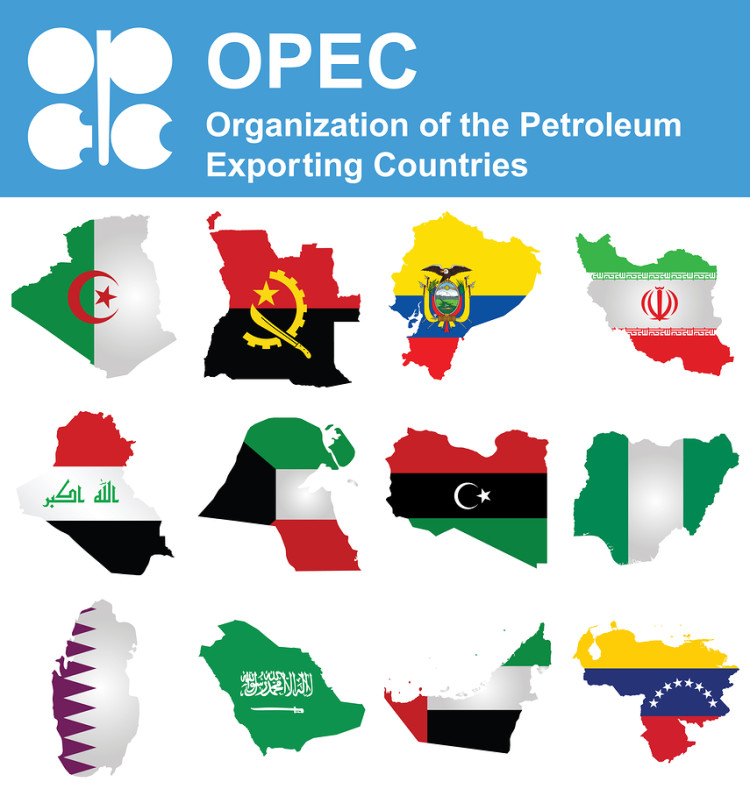Oil Jumps as Fuel Draw Adds to Talk of More OPEC Cuts

published Sep 20, 2017, 3:05:16 PM, by Jessica Summers
(Bloomberg) —
Oil closed above $50 a barrel for the first time since July as a drop in fuel supplies became the latest positive nudge following brightening demand prospects and signals that OPEC will intensify output cuts.
Futures jumped 1.9 percent in New York. U.S. gasoline inventories shrank last week to a level not seen since November 2015 and distillate stockpiles slid by the most since 2011, the Energy Information Administration said on Wednesday. The data suggesting refiners will need to step up crude processing followed robust demand growth forecasts last week from the International Energy Agency and OPEC. Meanwhile, Iraq and other oil-rich nations are mulling an extension of their supply-cap deal.
“Demand is clearly coming back, so there is a need for refining to come back online. The report shows that we’re recovering from the hurricane,” Rob Haworth, who helps oversee $142 billion at U.S. Bank Wealth Management in Seattle, said by telephone. “If OPEC is really still willing to commit to extending production cuts, that gives this market some room to test the upside here.”
Oil has risen more than 5 percent in New York since Harvey slammed into the Texas coast on Aug. 25, swamping the heart of the U.S. refining industry and disrupting everything from tanker arrivals to gasoline production. Despite that advance, Wednesday was the first settlement above the key psychological barrier of $50 since July 31 as booming output from American shale fields countered output cuts by the Organization of Petroleum Exporting Countries and its allies.
An OPEC committee concluded the cartel and allied oil producers last month overshot production curbs called for in their agreement, according to two delegates. The average so-called compliance rate for August was 116 percent, they said. Earlier this week, Iraqi Oil Minister Jabbar al-Luaibi said he and ministers from other oil-producing nations think production should be reduced by an additional one percent.
The U.S. benchmark West Texas Intermediate for October delivery, which expired Wednesday, rose 93 cents to settle at $50.41 a barrel on the New York Mercantile Exchange. Total volume traded was about 2 percent above the 100-day average. The more-active November futures contract climbed 79 cents to $50.69.
Brent for November settlement advanced $1.15 to end the session at $56.29 a barrel on the London-based ICE Futures Europe exchange, the highest level since March. The global benchmark crude traded at a premium of $5.60 to November WTI.
Something For Everyone
“There’s a little bit of something in the report for everyone this week. All in all, things are fairly constructive,” said Brian Kessens, who helps manage $16 billion in energy assets at Tortoise Capital Advisors LLC.
U.S. crude stockpiles rose to 472.8 million barrels last week, while inventories at the crucial trading hub in Cushing, Oklahoma, climbed to the highest since June and crude production increased for a second straight week. The pace at which refiners processed crude rose by the most since 2008, yet distillate supplies slid by 5.69 million barrels and gasoline stockpiles fell by 2.13 million barrels.
“We have more work to do to get supplies back up to normal so that should be very bullish for crude oil,” Phil Flynn, senior market analyst at Price Futures Group Inc. in Chicago, said by telephone. It’s “another sign that the refining demand is going to be very strong.”
Although the front-month gasoline futures contract that expires next week settled little changed at $1.6551 a gallon, later-dated contracts including the more-heavily traded November futures rose. Diesel for October delivery rose 1.9 percent to settle at $1.807, the highest closing level since July 2015.
Oil-market news:
The 7.2-magnitude earthquake that shook Mexico, killing more than 200 people, collapsing some buildings and cutting electricity hasn’t affected gasoline supplies, according to Petroleos Mexicanos. Russia is working with OPEC and other oil producers to stabilize crude prices, in line with the global accord to cut output, Russian Energy Minister Alexander Novak said in Algiers.
To contact the reporter on this story: Jessica Summers in New York at jsummers24@bloomberg.net To contact the editors responsible for this story: Reg Gale at rgale5@bloomberg.net Joe Carroll, Jim Efstathiou Jr.
COPYRIGHT© 2017 Bloomberg L.P







No Comment